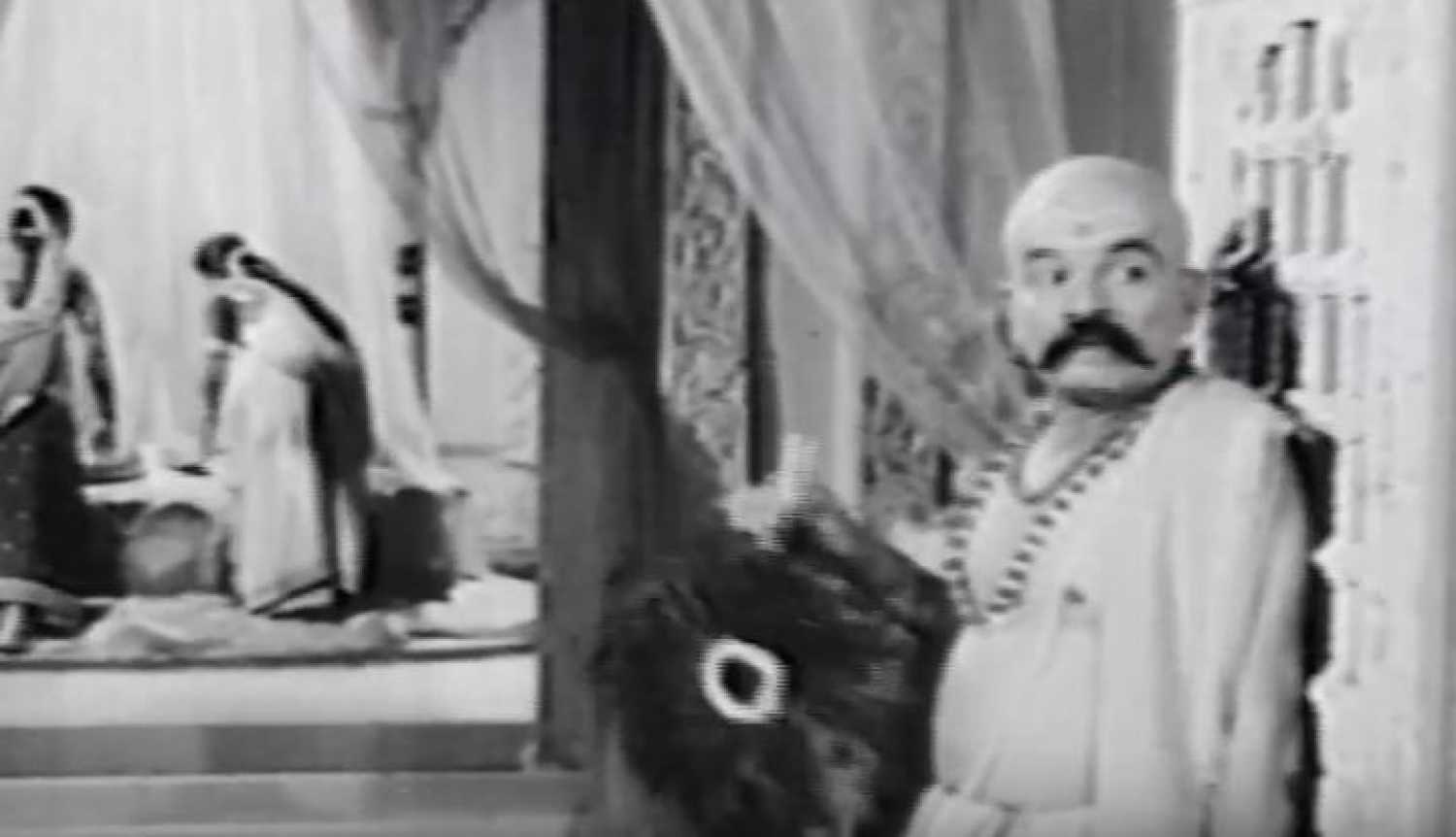Since the black-and-white era, Vasant Shinde was best known to lovers of Marathi cinema for his comic performances. Longtime associate and actor Dada Pasalkar recalls a few anecdotes.
When Vasant Shinde shot for a scene through deep personal loss: Death anniversary special
Mumbai - 04 Jul 2019 22:39 IST


Keyur Seta
The black-and-white era of Marathi cinema was blessed with a number of quality performers. And these included not just leading artistes like Jayshree Gadkar, Suryakant and Shahu Modak but also character artistes like Vasant Shinde.
Vasant Shinde was a versatile actor who could essay different roles, but he became a specialist in comedy and was used for comic relief even in mythological films.
Among Shinde's notable films were Mard Maratha (1951), Pedgavche Shahane (1952), Gulacha Ganpati (1953), Purushachi Zaat (1954), Kuldaivat (1955), Zhakli Muth (1957), Shikleli Bayko (1959), Sangtye Aika (1959), Mansala Pankh Astat (1961), Subhadra Haran (1963), Thoratanchi Kamla (1963), Mohityanchi Manjula (1963), Sawal Maza Aika (1964), Patlanchi Soon (1966), Thamb Laxmi Kunku Lavte (1967), Daiv Zanile Kuni (1967), Khandobachi Aan (1968), Manacha Mujra (1969), Ashi Rangali Raat (1970), Tumcha Aamcha Jamla (1976), Sansar (1980) and Muka Ghya Muka (1987).
Shinde, who was born in 1912, died on this day (4 July) 20 years ago. Longtime associate and veteran actor and theatre personality Dada Pasalkar remembered the yesteryear artiste, whom he addressed as Anna, in an exclusive conversation with Cinestaan.com.
According to Pasalkar, Vasant Shinde had a difficult childhood after his father passed away early. “His mother used to work as a maid," he said. "When he was just nine, he started doing odd jobs to help with the household expenses. When he was 12, he landed the lead role of Lord Ganesha in Dadasaheb Phalke’s Ganesh Mahima. He also worked in different departments, including cinematography, sets, painting, etc.”
Pasalkar said that once a person gets connected with a production house, he keeps getting work. Likewise, Shinde worked with Bhalji Pendharkar. He kept getting roles in films and finally got recognized as a comedian. “He was a natural at comedy," he said. "He was very good with words. The way he used to change and improvise was amazing.”

Talking of Shinde’s improvisation skills, Pasalkar remembered an interesting achievement of his. “Acharya [PK] Atre and PL Deshpande never allowed anyone to change even a word in their plays. But both had given Anna full permission to do so because they felt his inputs were useful. He was the only exception,” said Pasalkar.
This made him recall an incident narrated by Deshpande himself. “He said that earlier he was afraid to go on stage. Suddenly someone patted him on the back and said, ‘Go on stage. Nothing will happen.’ It was Vasant Shinde,” he said.
In his later years, Shinde had regular roles in the comedy star Dada Kondke's movies. Pasalkar said the two of them enjoyed great rapport. "Anna also acted in Dada Kondke's last film, Vajvu Ka? (1996)," he recalled.
Speaking of Shinde’s selfless commitment, Pasalkar recalled an emotional moment from his career. When Shinde was shooting for Ranga Panchami (1961), he received a telegram in the morning. “He just kept the telegram in his pocket and started shooting. The scene was that of a post-death ritual. He shot the scene well, but after that he fainted. When unit hands revived Anna, he showed them the telegram he had received. His mother had expired,” said Pasalkar.
Ranga Panchami director Anant Mane was shocked and asked Shinde why he did not share the news; he said he would have personally dropped him home in his car. “Anna simply said, ‘Would my mother have returned?’ He felt that if the shoot had been cancelled, it would have resulted in a loss of Rs10,000 for the producer.”
Pasalkar revealed that yesteryear comedy star Mehmood’s father Mumtaz Ali used to consider Shinde his idol. “He once emulated Anna’s eye movement from the closing part of Sangtye Aika in a play. Mehmood admitted this in front of everyone in Jayaprabha Studios. Mehmood had also once said that if he touched Anna, he felt he had visited Mecca,” said Pasalkar.
He also said Shinde was more fond of the old era because artistes were respected back then. “After 1990, old artistes weren’t given much respect," Pasalkar said. "Producers began to behave as if they were doing them a favour by casting them. Earlier, characters used to be written keeping [some of these artistes] in mind.”
Nilu Phule, another great from Marathi cinema, made his debut with Ek Gaav Baara Bhangadi (1968). But actually Shinde was supposed to do the role played by Phule. “Anant Mane had written the character for Anna," Pasalkar said. "Anna used to get Rs250 [for a day] then. He asked for Rs400 as he had to marry off his daughter. Mane said he would let him know the next day. But then he dropped Anna from the film and got Phule.”
Pasalkar also spoke about the not-so-impressive pay in the later stages of Shinde’s career. He said it went up to four figures only in 1990, “but never went into five figures for Anna in his lifetime. It went for the first time for Laxmikant Berde for the film Chal Re Laksha Mumbaila (1987). He asked for such compensation saying the film will run on the strength of his performance for a long time.”
Pasalkar said he still feels Shinde’s presence. He had celebrated the actor's birth centenary from 2012 to 2013 by staging 14 events.



